Humanist Month at the Freethinker continues with an article by Madeleine Goodall, Humanist Heritage Coordinator at Humanists UK.
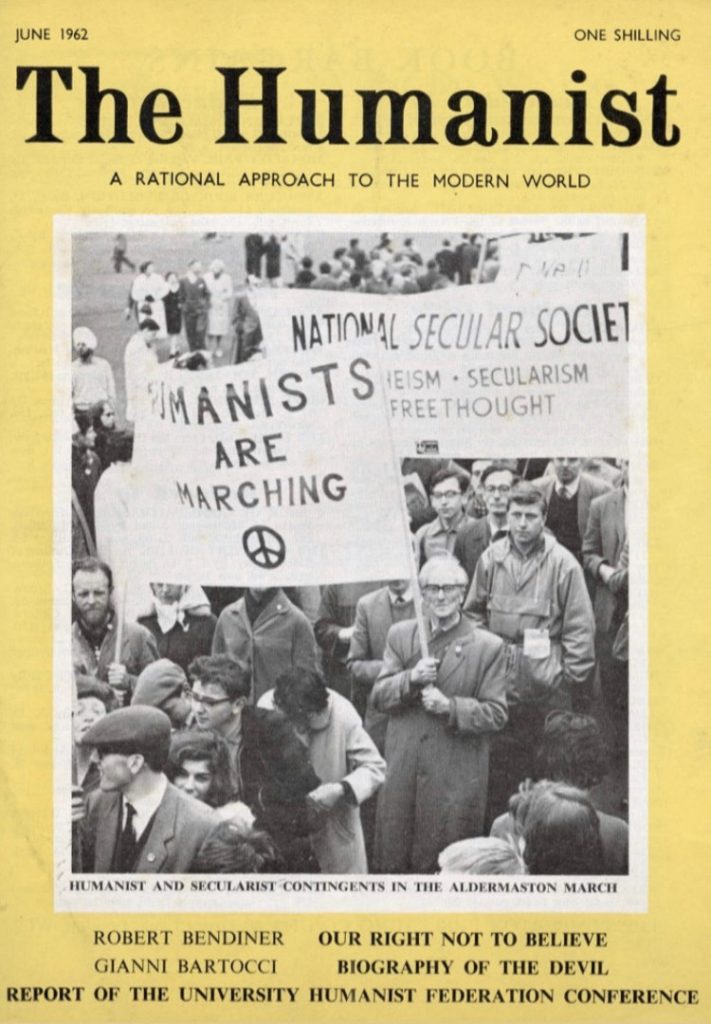
Nearly three years ago, Humanists UK launched the Humanist Heritage project, with the aim of commemorating its 125th anniversary in 2021. The Union of Ethical Societies, as Humanists UK was first known, was formed in 1896 by a federation of societies whose culture was rooted in living well without reference to supernatural ideas. These societies, part of what became known as the ‘Ethical movement’, had first appeared in England in the 1880s. They emerged from a melting pot of 19th-century freethought which itself was born from an intellectual tradition spanning over two millennia.
The ethical societies had their roots in the American Ethical Culture movement, which had begun in 1876 with Felix Adler’s New York Society for Ethical Culture. This society’s ethos had been encapsulated by its motto of ‘deed not creed’: an active morality which did not require its members to subscribe to any theological doctrine. In America, this first New York Society, along with the wider Ethical Culture movement that it spawned, still exist, and are linked to but distinct from the American Humanist Association and other atheist bodies. In the UK, however, the Ethical movement became the humanist one, and the sibilant ‘ethicists’ encompassed by the term ‘humanists’. The Union of Ethical Societies became the Ethical Union (1920), the British Humanist Association (1967), and has been known since 2017 as Humanists UK.
The word ‘freethinker’ emerged in the 1700s to describe someone who, quite simply, thought for themselves. The freethinker accepted nothing, particularly religious dogma, on authority, or perhaps was one of those ‘Atheists, Libertines, Despisers of Religion and Revelation,’ as Jonathan Swift put it in 1708. As his words suggest, the term ‘atheist’ had by then been around for close to two centuries, and was used to define someone who did not believe in a god, or who lived as though they owed no obligation to one.
The concept of the ‘secular’, as opposed to the sacred, had also long existed by the time George Jacob Holyoake coined the word ‘secularist’ in 1851. In so doing, he associated the term with action and a wider philosophy, the ‘secularist’ being one whose ‘province of human duty … belongs to this life’ – with emphasis on ‘duty’. Holyoake was well aware of the stigma attached to ‘atheism’; this was clear in his own elaboration of the secularist philosophy, and in the defences of him by others. He had begun his career as a lecturer for the socialist Owenite movement, many members of which subscribed to Robert Owen’s secular ‘rational religion’. This was, as Holyoake’s secularism would be, rooted in achieving happiness through purely human means. In the same decade as Holyoake’s coining of ‘secularist’, the word ‘positivist’ first began to be used in English to describe the secular philosophies of Auguste Comte, translated and popularised by Harriet Martineau in 1853.
In the next decade, the scientist T.H. Huxley – perhaps best known as ‘Darwin’s bulldog’ – would invent the term ‘agnostic’ to describe the position of not claiming to know anything which one does not have evidence to support. Stalwarts of evolutionary theory, including Charles Darwin himself and physicist John Tyndall, went on to adopt ‘agnostic’ to describe their own position with regard to religion. Today, humanists would typically describe their own stance as one of atheism or agnosticism.
Throughout the 19th century, thinkers like Holyoake and Huxley offered a new vocabulary for a radically transformed landscape of belief, in a Britain that was in the process of assimilating an ever-increasing volume of scientific knowledge. Today, a fresh focus on the humanist tradition can draw together anew the many contributions made by ‘free thinkers’ to human progress through thinking for themselves and acting for others. In doing so, our picture of the past becomes a more diverse and a more accurate one, and the claim that atheists were necessarily immoral or amoral can be firmly refuted.
In addition to celebrating the history of Humanists UK, the Humanist Heritage project also aims to unearth, explore and map a tradition of thought and deed that can arguably be described as ‘humanist’ and which had existed in the UK long before the 19th century’s rational religionists, secularists, positivists, and ethicists appeared on the scene. Indeed, a ‘humanist’ tradition of non-religious ethical thinking long predates Christianity. Throughout history, there have been people asking questions about where we came from and why we are here, what is right and wrong, and how we might best be able to live with each other. And throughout history, across the globe, many have arrived at answers which reflect aspects of a worldview that we could now describe as ‘humanist’. Whether they have rejected gods or ignored them, where their decisions have been rooted in earthly action, based on human reason and compassion for other people, they are, we would argue, part of the humanist tradition.
All of this is why we have decided to include figures in the Humanist Heritage project who did not, or could not, identify as humanists, in many cases because the word in this modern sense did not exist. These include ancient philosophers such as Epicurus, who grounded their philosophies in the one world they could be sure of; heretics like Thomas Aikenhead, who risked their lives to challenge doctrine they could not accept; 18th-century freethinkers who sought to bring reason to bear on so-called revelation, including those, like the deists, who did not dispense with god altogether; and Owenites and ‘Rational Religionists’, such as Frances Wright, who sought radical societal reconstruction for the benefit of everyone. All of these people, we would argue, have helped to pave the way for the flourishing of humanist ideals, or exemplified them.
This long and rich history has been explored in a number of key texts. Many of these emerged from the 1950s onwards, when the organised humanist movement, by then self-identifying as such, was working to define itself. From 1957–1960, The Humanist magazine (now the New Humanist) ran a series of articles charting ‘The Humanist Tradition’. This series was perhaps inspired by their own renaming in the previous year to The Humanist from The Literary Guide. As Julian Huxley wrote, in support of the name change:
‘Humanism seems to me to express better than any other single term the attitude of the numerous group of people who are unable to accept irrational theories and authoritarian dogmas. It implies attaching importance to all essential human attributes and values— morality as well as science, art as well as reason.’
The first article in ‘The Humanist Tradition’ was written by H.J. Blackham, known today as the architect of the modern humanist movement. He presented an overview of humanist history which he intended to inform the movement’s next steps. ‘Humanism has a future,’ he wrote, ‘not merely because it has a past but solely in so far as humanists care for their tradition enough to learn from it what they want to do always and what they want to do next.’ Those raised in a religious faith may be under the impression that no alternative exists, or has such an established tradition, but this was a misconception easily challenged. ‘It is possible,’ Blackham argued, ‘to reject the tradition in which one is brought up and to look back and pick up, so to speak, a tradition which one has not yet received, which one chooses for oneself because it offers roots and a home.’
Challenging misconceptions and illuminating the rich history of humanist thought would also underpin the creation of psychologist and humanist Margaret Knight’s Humanist Anthology in 1961. Anticipating it in 1960, Hector Hawton wrote of his hope that ‘if our more vocal opponents consult a sourcebook of this kind they will refrain from making silly statements about us … I am tired of being told that humanism – the goal of which is the development of the whole man – is indifferent to emotion and imagination. The charge that we have no basis for morals also crops up with monotonous regularity … History,’ he added, ‘plainly shows that humanists have been in the forefront of social reform.’ Margaret Knight’s introduction to the anthology, first published in 1961, is worth quoting from at length, covering as it does not only the broad sweep of humanist thought but a consideration of the word itself:
‘ “The meaning of a word,” said Wittgenstein, “is the way in which it is used”: and the meaning, thus defined, of the word ‘Humanist’ has changed appreciably since the turn of the century. Today, to describe someone as a Humanist does not usually imply that he has been educated in Literae Humaniores. Rather, it implies that he sees no reason for believing in a supernatural God, or in a life after death; that he holds that man must face his problems with his own intellectual and moral resources, without invoking supernatural aid; and that authority, supernatural or otherwise, should not be allowed to obstruct inquiry in any field of thought …
‘Though the terminology has altered, there is of course nothing new in these doctrines. Humanism derives from a far older tradition than Christianity. The great classical civilisations of China, Greece and Rome were rooted in Humanist values; and though these values were obscured in Europe during the long night of the Dark Ages, they shone forth with renewed brilliance at the Renaissance, and have gathered fresh strength today in alliance with the mighty power of Science.’
Another humanist anthologist, Bet Cherrington, would put it more simply still in Facing the World: an Anthology of Poetry for Humanists (1989): ‘humanism as a philosophy for living is as old as human thought and as widespread as the human race.’
The year the Humanist Anthology was published also saw The Humanist Frame, edited by Julian Huxley and with contributors including Bertrand Russell, Barbara Wootton, and Stephen Spender. While his grandfather, T.H. Huxley, had coined ‘agnostic’, Julian Huxley settled on ‘evolutionary humanism’ to describe his own philosophy: one in which ‘human knowledge worked over by human imagination is seen as the basis of human understanding and belief, and the ultimate guide to human progress.’ As well as being founding Director General of UNESCO, Huxley would also become the first President of the umbrella organisation, the British Humanist Association, formed from the Rationalist Press Association and the Ethical Union in 1963. The 1960s also produced Hector Hawton’s The Humanist Revolution; The Humanist Outlook, edited by the philosopher A.J. Ayer; and the British Humanist Association’s Towards an Open Society. All of these works contained an exposition of the humanist approach and examined its implications for living.
But it had not taken works like these, and the many others which followed, to prompt centuries of earlier ‘humanists’ to work unstintingly for progressive social and political change. Indeed, the very definitions of those earlier terms contained within themselves an impetus to activity: whether it was the secularists with their emphasis on political reform, the ethicists with their focus on ‘well-doing’ alongside ‘well-being’, or even those self-identified ‘heretics’, whose heresy classicist Jane Ellen Harrison had described as a ‘reaching out to grasp … a studious, zealous pursuit’ of something better. George Jacob Holyoake’s activist daughter Emilie described her father’s belief in the ‘piety of usefulness rather than the usefulness of piety’ – a characterisation which, as a trade unionist and humanist organiser, might just as easily have been applied to her. The Union of Ethical Societies, which both father and daughter actively supported, were rooted in Adler’s ideal of ‘deed not creed’. The casting aside of gods had always placed the responsibility for a better world squarely on the shoulders of humankind. Where there was negation, there was forward movement too. As American anarchist and humanist Lucy Parsons had put it in 1889: ‘We have heard enough about a paradise behind the moon. We want something now.’
The Humanist Heritage website seeks to chart the way that convictions like these have contributed to a freer and more tolerant world. Such contributions are too often assumed to have been the sole preserve of the religious, but this notion is all the more galling in view of the fact that, throughout history, undue religious influence has frequently had to be countered for progress to be achieved. This was certainly the case in the centuries of activism by humanists or their intellectual predecessors against the blasphemy laws, for press freedom, and for the right to affirm rather than swear an oath; in the tireless campaigning by individuals like May Seaton-Tiedeman, Dora Russell, and Dorothy Thurtle for the right to self-determination in matters of marriage, divorce, and reproduction; or across well over 100 years of campaigning for a more inclusive education system. Frequently, humanist activists of this kind have fought a double battle, challenging the status quo while at the same time being derided for their atheism.
Some humanists or those with arguably humanist values, motivated by nothing beyond their own reason and humanity, have played leading roles in efforts to counter racist ideologies, for women’s rights and suffrage, for international cooperation, for LGBT+ rights, for universal healthcare, for higher education, and for peace and nuclear disarmament. Such individuals, and the organisations they have supported, have long worked to meet the needs of those of all religions or beliefs, as well as pioneering services for the non-religious in those instances where they were underserved. For two centuries, for example, some humanists, secularists, and freethinkers have been providing non-religious ceremonies to mark major moments in people’s lives and their ending in ways which are meaningful to them. The Humanist Housing Association, the Agnostics Adoption Society, and the Humanist Counselling Service (a forerunner of today’s Non-Religious Pastoral Support Network), were all spearheaded by humanists during the 1950s and 1960s.
There are many things that such individuals and organisations have done to change the world for the better. As Hector Hawton wrote in his editorial for the newly renamed Humanist magazine:
‘A thing is what it does. Humanists, rationalists, freethinkers, do not differ because they wear different labels. They are members of a movement that is influencing society in a certain way. As individuals, of course, they do not always come to the same conclusions. Yet, despite this diversity, the general effect of combining is to create a current of opinion in a very definite direction.’
Historically, humanists, secularists, rationalists, and freethinkers have played leading roles in campaigns for civil liberties, for internationalist ideals, and for the rights of women and minorities. All of which is to say nothing of the immeasurable contribution of individuals with humanist values to the arts, science and popular culture. Today, in the spirit of their intellectual predecessors, some humanists continue to work for a society which better represents everyone, of all faiths and beliefs: one which sees the non-religious justly acknowledged, but no one privileged or discriminated against. Even now, non-religious people still face severe persecution in many countries. In the UK, state-funded schools can still select children on religious grounds and teach a religiously skewed curriculum; bishops still sit in the House of Lords; blasphemy remains a crime in Northern Ireland; and the government has failed to protect LGBT+ people from so-called ‘conversion therapy’. At this point in our history, efforts to counter religious privilege and create a kinder, more tolerant society remain as vital as ever.
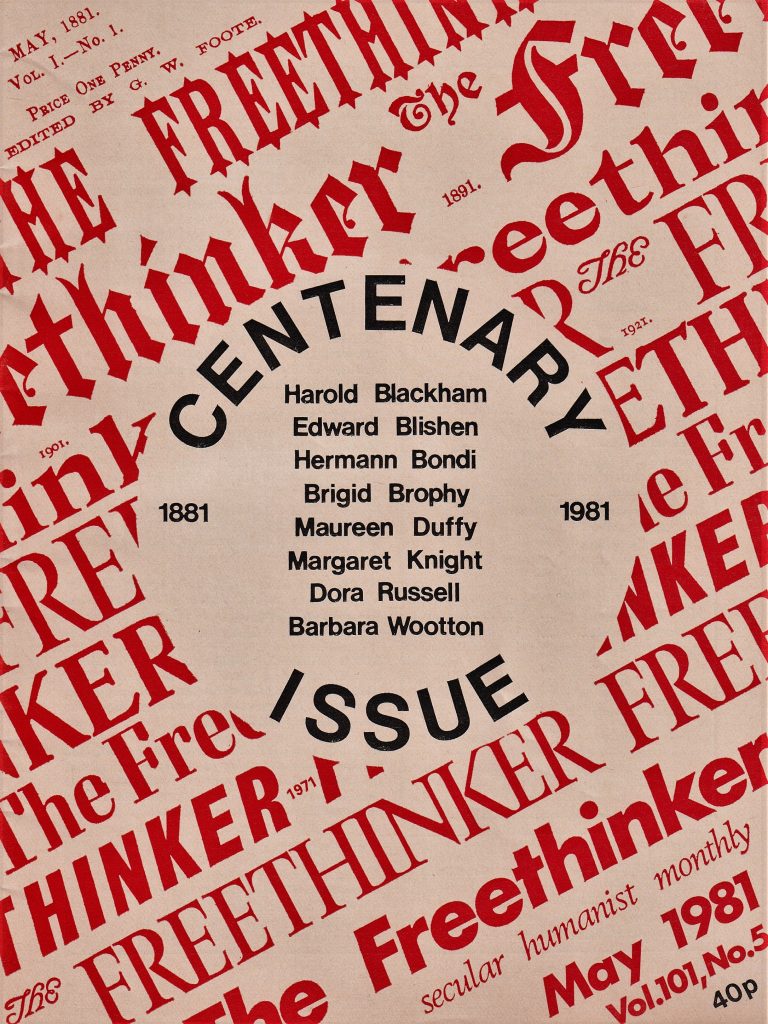


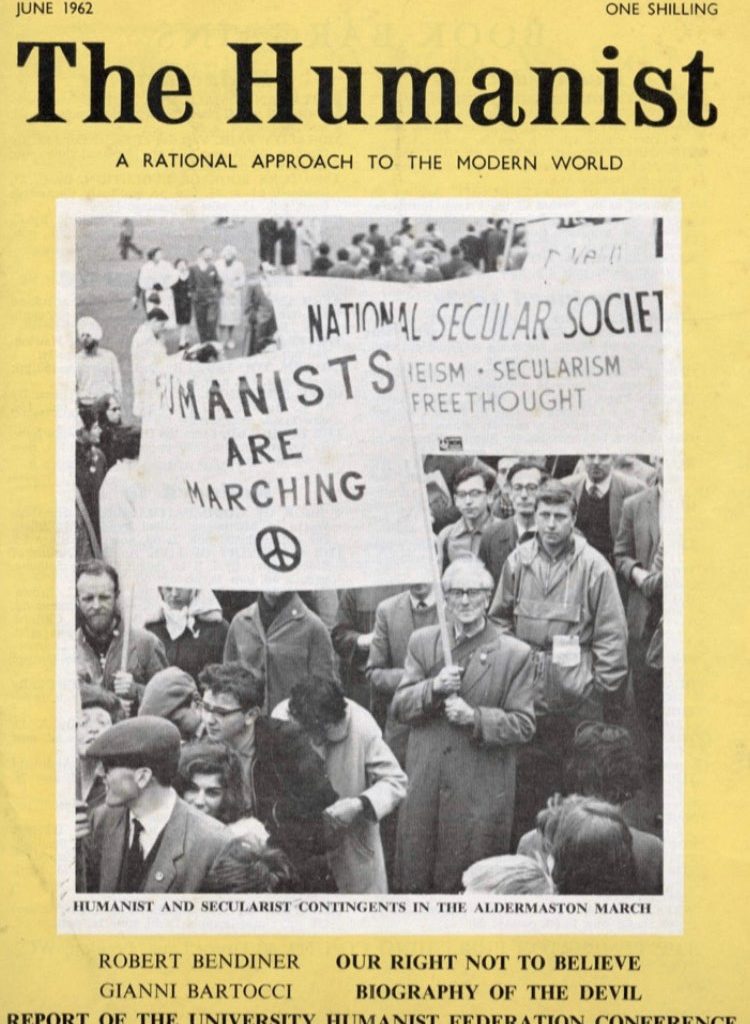
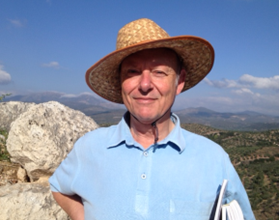


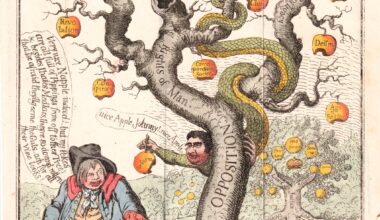
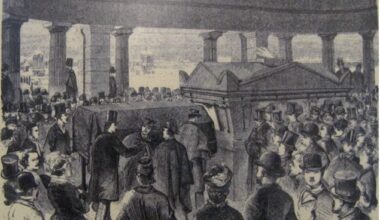
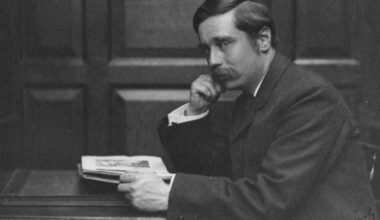
Your email address will not be published. Comments are subject to our Community Guidelines. Required fields are marked *
Donate